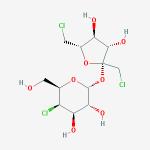It's almost boring to keep telling people about the safety of sucralose and other approved sweeteners because we've done it so many times (for example here
sweeteners
One of the most controversial nutritional theories promulgated in recent years is the one based on experiments by researcher Susan Swithers at Purdue University.
While we don t always agree with the FDA s actions, yesterd
Past research on the efficacy of low calorie sweeteners (LCS) for weight loss has had mixed res



